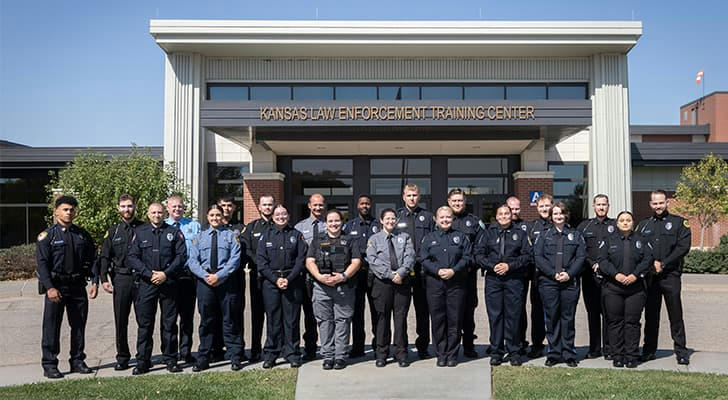Beyond the Gavel: Unpacking the Reality of Law Education
Forget the dramatic court showdowns and endless case files from legal dramas—learning law is far more dynamic and impactful than its fictional portrayals. It’s a deep dive into the structures that shape society, the evolution of justice, and the real-world applications of legal principles. This article explores the reality of studying law, from modern curricula to career pathways, revealing the challenges and rewards that define this fascinating field.

From Theory to Practice: The Evolution of Law Curricula
The perception of law school as an endless cycle of memorization and precedent analysis is changing. Today’s legal education prioritizes practical application, critical thinking, and skill development. While foundational legal principles remain essential, the emphasis has shifted toward real-world scenarios.
Consider a contract law course. Rather than just studying legal doctrines, students engage in simulated negotiations, draft business agreements, and analyze contract disputes in contemporary industries. Similarly, criminal law students often participate in mock trials, stepping into the roles of prosecutors, defense attorneys, and witnesses. Many law schools now incorporate digital courtroom simulations, offering realistic training in cross-examination and witness testimony within a controlled environment.
Beyond individual courses, many law programs integrate interdisciplinary studies. Law is deeply connected to economics, sociology, political science, and even technology. Some institutions offer dual-degree programs, such as a Juris Doctor (JD) combined with a Master of Business Administration (MBA), providing students with a broader perspective on legal applications in business and governance.
Beyond Legal Jargon: The Human Side of Law

Law is ultimately about people. Courses in areas like family law, human rights law, and public interest law emphasize the societal impact of legal decisions. Students confront ethical dilemmas, examine legal policies, and work directly with communities affected by legal issues.
For example, an immigration law course might include volunteer work at legal aid clinics, where students assist immigrants navigating complex legal procedures. These hands-on experiences offer profound insights into legal systems while fostering empathy and social responsibility. In major metropolitan areas, legal aid clinics handle upwards of 1,500 cases annually, demonstrating the high demand for legal assistance.
Additionally, courses on legal ethics and professional responsibility challenge students to reflect on their role in society. Discussions on access to justice, pro bono work, and ethical obligations encourage future lawyers to consider the broader implications of their careers beyond personal success.
The Digital Age and the Changing Legal Landscape
Technology is reshaping the legal profession, and law education is adapting accordingly. Courses on cyberlaw, intellectual property, and data privacy tackle issues related to artificial intelligence, blockchain, and digital rights. Understanding the legal complexities of emerging technologies is now crucial for future lawyers.
Furthermore, online learning platforms and legal tech tools are revolutionizing education. Interactive simulations, AI-powered legal research tools, and virtual courtrooms provide students with cutting-edge resources. Modern legal research platforms can analyze millions of legal documents in seconds—something that would have taken countless hours a decade ago.
The impact of technology goes beyond education and into practice. The increasing use of legal automation tools is transforming law firms, reducing the time spent on routine tasks such as document review and case analysis. This shift allows lawyers to focus on complex strategic work, requiring an evolving skill set that includes proficiency in legal tech solutions.
Learning Beyond the Classroom: Real-World Experience

A law degree isn’t confined to textbooks. Internships, externships, and clinical programs offer students invaluable real-world exposure. Opportunities to work at law firms, government agencies, or non-profit organizations provide hands-on experience while building professional networks.
These experiences not only refine legal skills but also help students explore career possibilities. The legal profession offers diverse paths, from litigation and corporate law to specialized fields like legal tech and compliance. Many law schools report that over 70% of their graduates secure employment within ten months of graduation, highlighting the strong demand for legal professionals.
Another essential aspect of practical legal education is moot court competitions, where students argue simulated cases before a panel of judges. These competitions sharpen legal research, writing, and oral advocacy skills while offering exposure to real-world legal scenarios. Participation in these activities enhances a student’s ability to think on their feet, an invaluable skill in both litigation and negotiations.
Additionally, international law programs offer students the chance to study abroad, gaining insights into different legal systems and cultural perspectives. Exposure to comparative law helps future lawyers understand how international treaties, trade agreements, and human rights laws interact in a globalized world.
The Challenge and the Reward: Developing a Legal Mindset
Studying law is intellectually demanding, requiring analytical thinking, problem-solving, and the ability to navigate complex issues. However, the rewards are significant. A legal education develops valuable skills in argumentation, negotiation, and research—abilities that extend beyond law and apply to a range of careers.
Beyond professional growth, law study fosters a deep understanding of societal institutions and justice systems. It equips individuals to become informed, engaged citizens who can advocate for meaningful change. Perhaps one of the most underrated benefits is the development of strong analytical skills. The sheer volume of required reading enhances focus and comprehension, while constructing compelling arguments sharpens both written and oral communication.
Many law graduates find success in non-traditional career paths. A background in law is highly regarded in business, politics, journalism, and even entrepreneurship. The ability to analyze contracts, understand regulations, and construct persuasive arguments is invaluable in various industries.
The Future of Legal Education: Adapting to Change
As the legal field evolves, so too must legal education. More institutions are integrating experiential learning, offering specialized programs in emerging legal fields, and embracing technological advancements. The shift toward hybrid and online learning models has also expanded accessibility, allowing more students worldwide to pursue legal education without geographic constraints.
Moreover, law schools are emphasizing diversity, equity, and inclusion initiatives to reflect the changing landscape of the legal profession. Programs that support underrepresented students, mentorship opportunities, and scholarship funds aim to create a more equitable legal field that better serves society as a whole.
Ultimately, law education is more than just learning rules—it’s about developing the expertise, ethical grounding, and critical thinking needed to navigate the complexities of the legal world. Whether aspiring to the courtroom, corporate boardrooms, or public service, the journey through law school is a transformative experience that shapes not just careers, but also perspectives on justice and society.
